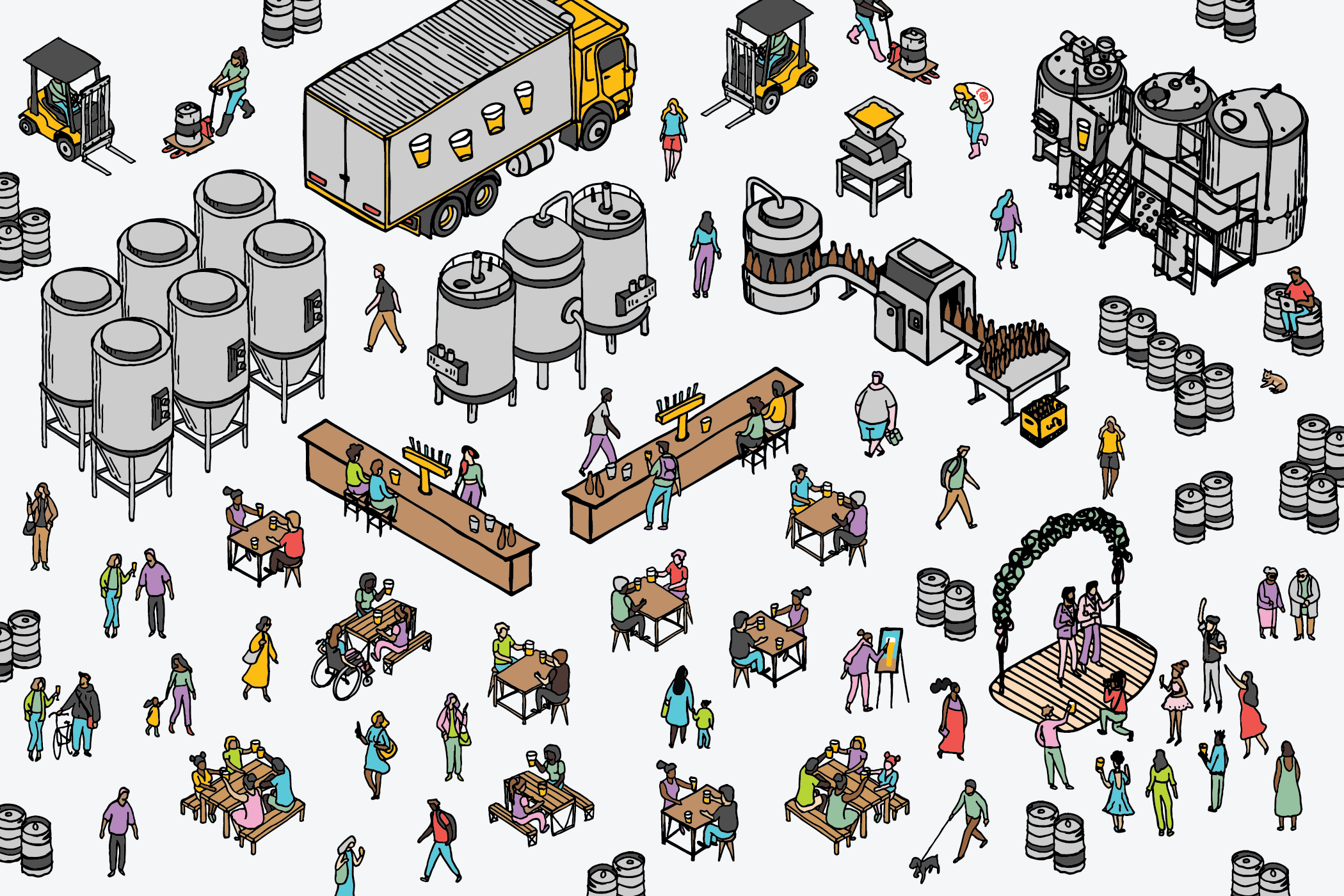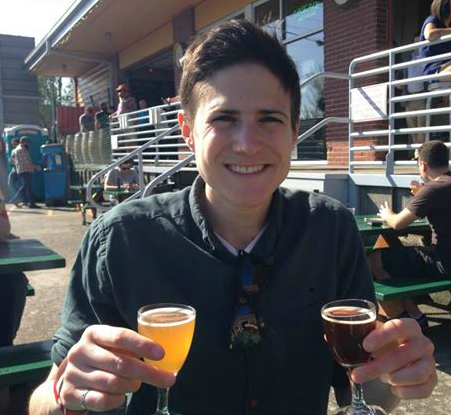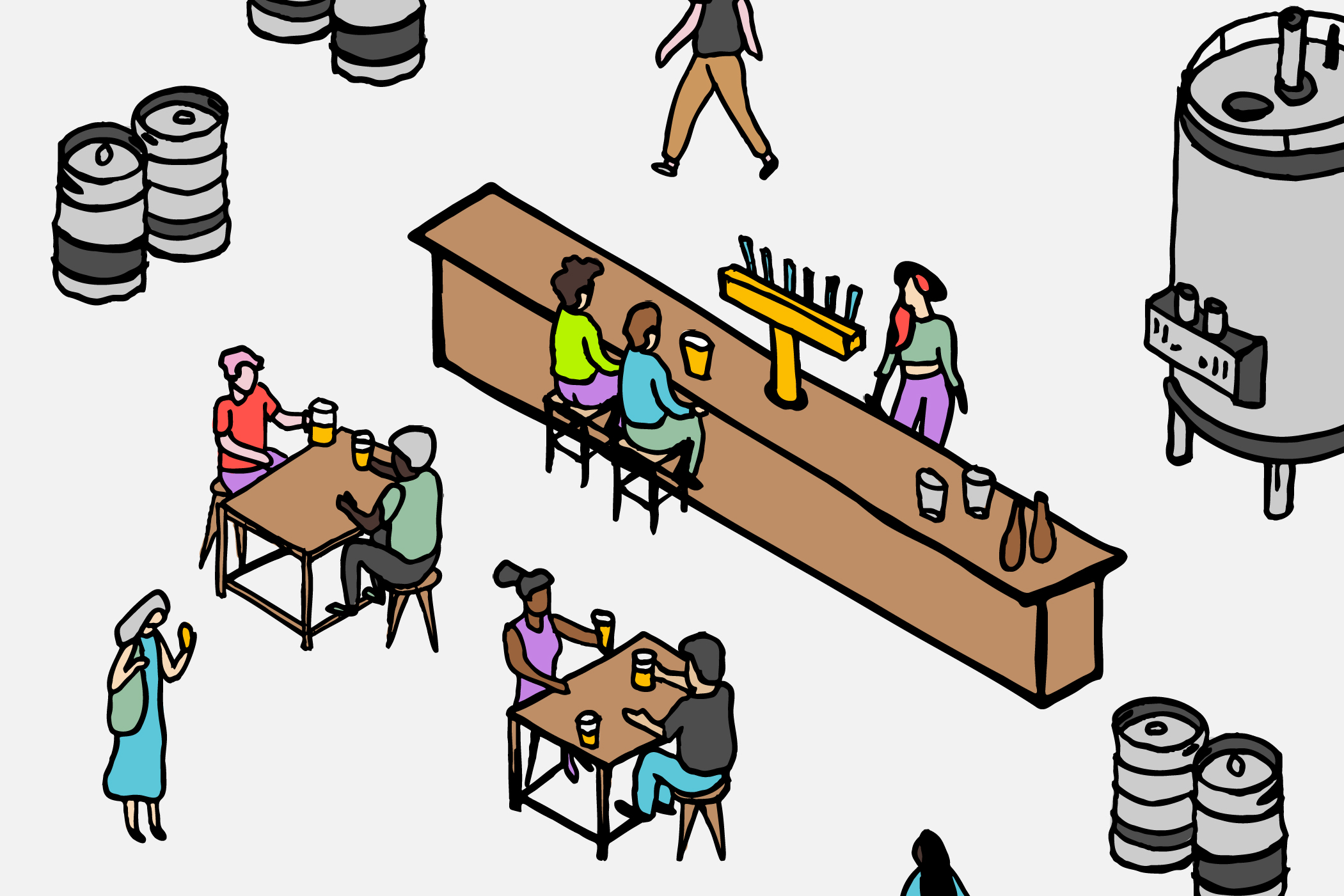Shop
Creating Safer Spaces in Craft Beer, Part Ten — Why We Wrote 16,000 Words for This Series
Part ten of ten.
“Creating Safer Spaces in Craft Beer” is an in-depth, ten-part series examining why it’s important to embrace diversity, equity, and inclusion in craft beer. Every Monday for the next ten weeks, we’ll be releasing a new part to the series.
[Creating Safer Spaces in Craft Beer, Part One — Why Isn’t Craft Beer More Diverse?]
[Creating Safer Spaces in Craft Beer, Part Two — What Does a Safe Space Look Like?]
[Creating Safer Spaces in Craft Beer, Part Three — Does Every Brewery Needs a Code of Conduct?]
[Creating Safer Spaces in Craft Beer, Part Four — Hire Intentionally and Train Your Team]
[Creating Safer Spaces in Craft Beer, Part Five — Start a Vocational Program]
[Creating Safer Spaces in Craft Beer, Part Six — Crafting Inclusive Events for Your Community]
[Creating Safer Spaces in Craft Beer, Part Seven — Brewing Beers That Make a Difference]
[Creating Safer Spaces in Craft Beer, Part Nine — It’s Okay to Make Mistakes, Just Don’t Tick Boxes]
I stood on the top of a shipping container as the rain cascade down on me. A million thoughts poured through my head as I looked out over the the immense paved parking. Below me milled hundreds of people who had joined us for the inaugural year of Beers With(out) Beards (BW(O)B), our festival celebrating woman, woman-identifying, and non-binary folx in craft beer.
I thought everyone one would pack it up and go home.
I thought people wouldn’t care.
In my head I imagined them telling themselves, ‘Hey, this was fun while it lasted but I’m cold and wet now and supporting women, women-identifying, and non-binary folx in craft beer isn’t as important as my personal comfort.”
I felt sure that everyone would collectively throw up their hands in frustration and shuffle disgruntling towards the exit.
But as my brain rioted, something happened.
“Creating Safer Spaces in Craft Beer” is an in-depth, ten-part series examining why it’s important to embrace diversity, equity, and inclusion in craft beer. Every Monday for the next ten weeks, we’ll be releasing a new part to the series.
[Creating Safer Spaces in Craft Beer, Part One — Why Isn’t Craft Beer More Diverse?]
[Creating Safer Spaces in Craft Beer, Part Two — What Does a Safe Space Look Like?]
[Creating Safer Spaces in Craft Beer, Part Three — Does Every Brewery Needs a Code of Conduct?]
[Creating Safer Spaces in Craft Beer, Part Four — Hire Intentionally and Train Your Team]
[Creating Safer Spaces in Craft Beer, Part Five — Start a Vocational Program]
[Creating Safer Spaces in Craft Beer, Part Six — Crafting Inclusive Events for Your Community]
[Creating Safer Spaces in Craft Beer, Part Seven — Brewing Beers That Make a Difference]
[Creating Safer Spaces in Craft Beer, Part Nine — It’s Okay to Make Mistakes, Just Don’t Tick Boxes]
Colorful umbrellas started popping up everyone. People crammed under the huge main tent gabbing, laughing, and drinking.
As I looked on, groups of three or four people now huddled together under one umbrella. Every so often one member dashed out to snag pours for everyone.
People didn’t leave.
No one complained.
In fact, the energy seemed to increase.
Here in the backyard of a Brooklyn bar in the middle of the pouring rain I saw living proof, that BW(O)B mattered. That the event we created had a purpose.
People wanted to be here because the festival mattered to them.
Because they wanted to drink beer and show solidarity and support.
Why Hop Culture Wrote a Ten-Part Series on Creating Safer Spaces in Craft Beer
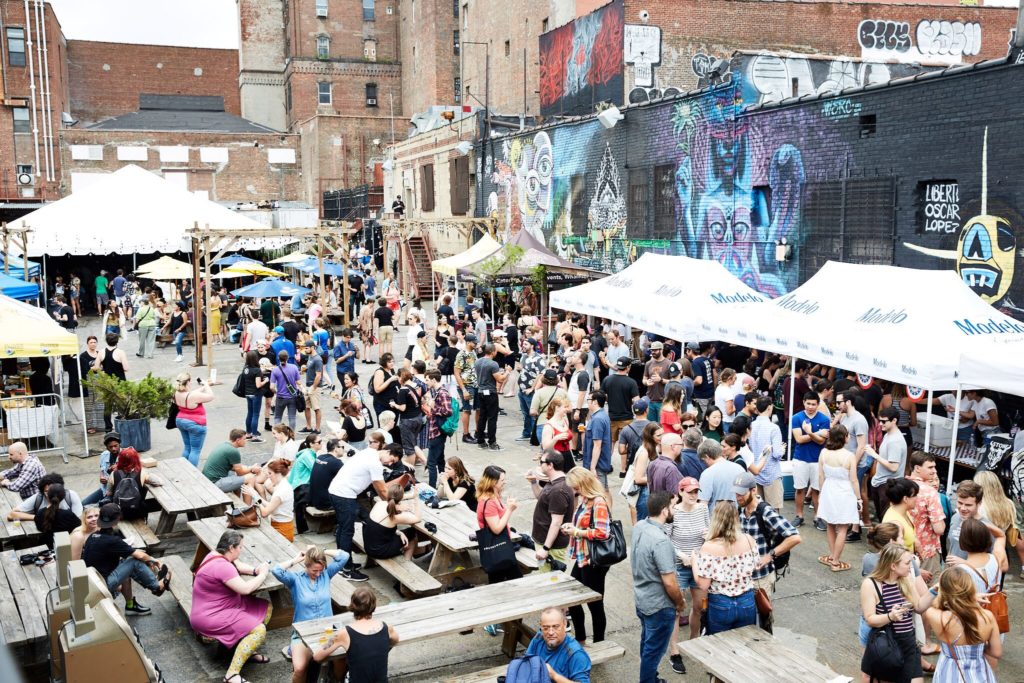
Hop Culture’s inaugural Beers With(out) Beards festival | Photography courtesy of Lauren Perlstein
So. why did we spend the better part of a year and over 16,000 words writing this ten-part series?
Because the stories in this piece matter; the people in this piece matter; and the need for change matters.
Because if we can start a disucssion, changing one, ten, or one hundred minds to understand that representation, diversity, inclusion, and most importantly, equity in craft beer makes a difference, that makes it all worth it.
Crowns and Hops Co-Founder Teo Hunter perhaps described it best when I interviewed him for another story. “People muddle talking about diversity, inclusion, and equity and craft beer with it being political versus it being anything other than just something that would enrich the community,” he said. “So if you can imagine, conversations get produced and dismissed almost before they even got any traction.”
We don’t want to ignore, muddle, or mince words.
Lady Justice Co-Founder Betsy Lay told me a story recently that really resonated.
A Queer-, Woman-, and Latina-owned social enterprise brewery that exists solely to raise money for different Queer and female-focused organizations around Colorado, Lady Justice has a clear mission.
Over the past almost ten years, the brewery has raised close to $50k for 90 local organizations.
But Lay says the true impact of their work hit her at the Great American Beer Festival (GABF) in 2017. A random person stopped her asking if she was Betsy from Lady Justice. “She just started crying,” says Lay. “She was just like, it’s so important that you’re doing this and that Lady Justice exists, so that’s when it sort of clicked for me that it’s important to people on a very deep emotional level.”
Now, Lay thinks back to that moment when the work gets tough.
Just like I think back to standing on that shipping container in Brooklyn.
Or to an encounter I had at our first in-person Queer Beer festival, celebrating the coloful voices of the LGBTQIA+ community in craft beer in Washington D.C. last year.
A straight white couple came up to me thanking me for putting on this event. Their child recently came out as trans and they shared with me that they hoped to bring them next year, to show them that inclusive, energetic, and most importantly, safe spaces existed for them even in an industry like beer.
These Are the Stories That Inspire Hop Culture Everyday
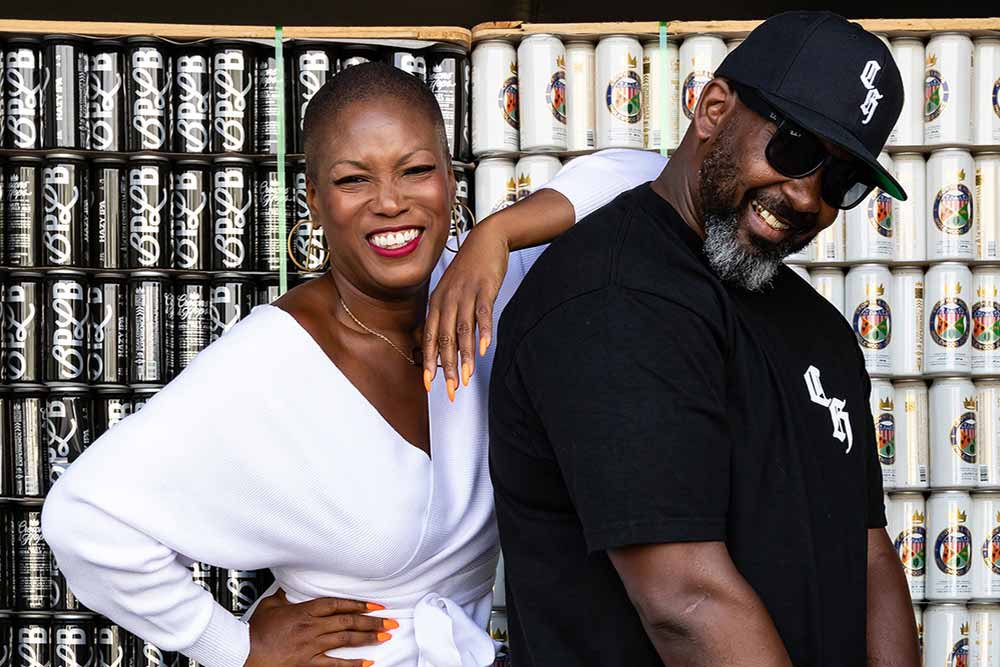
Crowns & Hops Co-Founders Beny Ashburn and Teo Hunter | Photography courtesy of Crowns & Hops
We wrote this ten-part series for the people who have inspired us.
Like Alisa Bowens-Mercado, who started the first women- and Black-owned brewery in Connecticut because she couldn’t find other people who looked like her to enjoy beer with at festivals.
Or Hunter and his co-founder Beny Ashburn, who, with Crowns & Hops, unapologetically tap into their Black culture to start conversations redefining what craft beer culture looks like today.
Or Carmen Favela-Vasquez, who started Mujeres Brew House—a brewery by-women, for-women, with beer all brewed by women—during the pandemic simply because the women of her community needed a space to call their own.
We wrote this ten-part series because of the people we’ve met.
For instance, Dr. J. Jackson-Beckham, who serves as the Brewers Association Equity & Inclusion parnter and started several of her own companies including Crafted For All and Craft x EDU. When I ran into Dr. J. at a bottle share celebrating the inauguration of the National Black Brewers Association, she teared up, sharing she sometimes wondered if the day would ever come when an organization existed to support and fund Black and Brown people in craft beer.
Or Rich Bloomfield, Zack Day, and Greg Williams, co-founders of Funkytown Brewery and winners of this year’s Samuel Adams Brewing the American Dream Experienceship (and Zack himself also won a Michael James Jackson Foundation Scholarship). All three work full-time jobs in Chicago while also starting a brewery that brings Black perspective to beer through thoughtfully designed beers invoking 90s hip hop culture.
Or Maíra Kimura, Fernanda Ueno, and Yumi Shimada, co-founders of Japas Cervejaria. All three are Nipo-Brazilians or Brazilian-born individuals with Japanese ancestry. Each beer Japas puts out shares a part of their heritage.
We’re writing this ten-part series because of those who’ve experienced discrimination.
Like Necromancer Head Brewer Lauren Hughes and Lead Brewer Nina Santiago, who shared an instance of harassment at a beer festival last May.
Or Instagram influencer and brewer Grey Stone (@isbeeracarb), who publicly shared their instances of provocation in brewhouses such as Mikkeller San Diego and Modern Times. “I had a lot of shitty experiences,” Stone shared. “I felt very rejected, bullied, harassed, and experienced a lot of discrimination.”
And Ren Navarro, (one of Hop Culture’s 10 People to Watch in Craft Beer in 2022), founder of Beer. Diversity. (@beer_diversity), a Canadian company educating and advocating for diversity in the craft beer industry, who posted in real time about her traumatic experiences at the Craft Brewers Conference (CBC) in Nashville, TN,
And so, so many more.
No single person can change the industry all on their own.
We need help.
We need to do better.
And we need to disrupt.
How Hop Culture Will Create Safer Spaces in Craft Beer
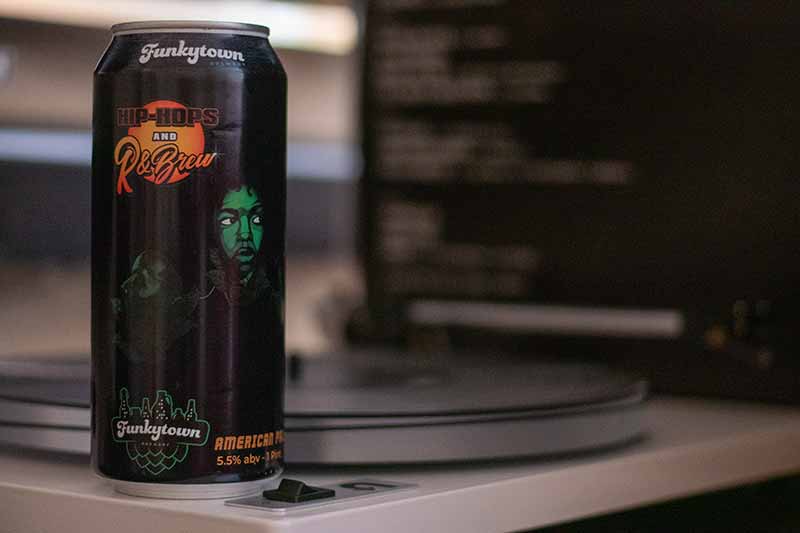
Photography courtesy of Funkytown Brewery
For my part, I see Hop Culture as a powerful platform, a place where we can share stories that have never been told before.
So are you an underrepresented writer looking to share your perspective? Email me ([email protected]).
Are you a minority-owned brewery struggling for your voice to be heard? Tell me. We’re committed to sharing these narratives because they matter; your story matters.
Yes, we must constantly stay plugged into what’s happening around us. Diversity, equity, and inclusion is an investment.
You don’t set it and forget it.
You don’t check a box and call it a day.
Instead, you constantly check in with your team, your community, and yourself.
In the end, beer is all these disparate ingredients, right? Hops, malt, yeast, and water coming together in one glass to form a beautiful liquid. Just like brewers magically take all these incredibly different ingredients and combine them to make incredible beer, we need to find those disparate parts of our communities and bring them all into our breweries.
When we do, we create something magical.
We can’t change the past, but we have the power to write our own plot lines going forward.
So to those who continue to ask us to “stop being woke,” to just write about beer because its only beer, and to only write about that “straight beer stuff” you can kindly unfollow us or choose to read somewhere else because this certainly won’t be the last time that we support Queer, Black, Brown, AAPI, Indigenous, Latine, women-owned or other marginalized folx in craft beer.
Representation matters in everything.
Even if it’s simply a glass of beer.

